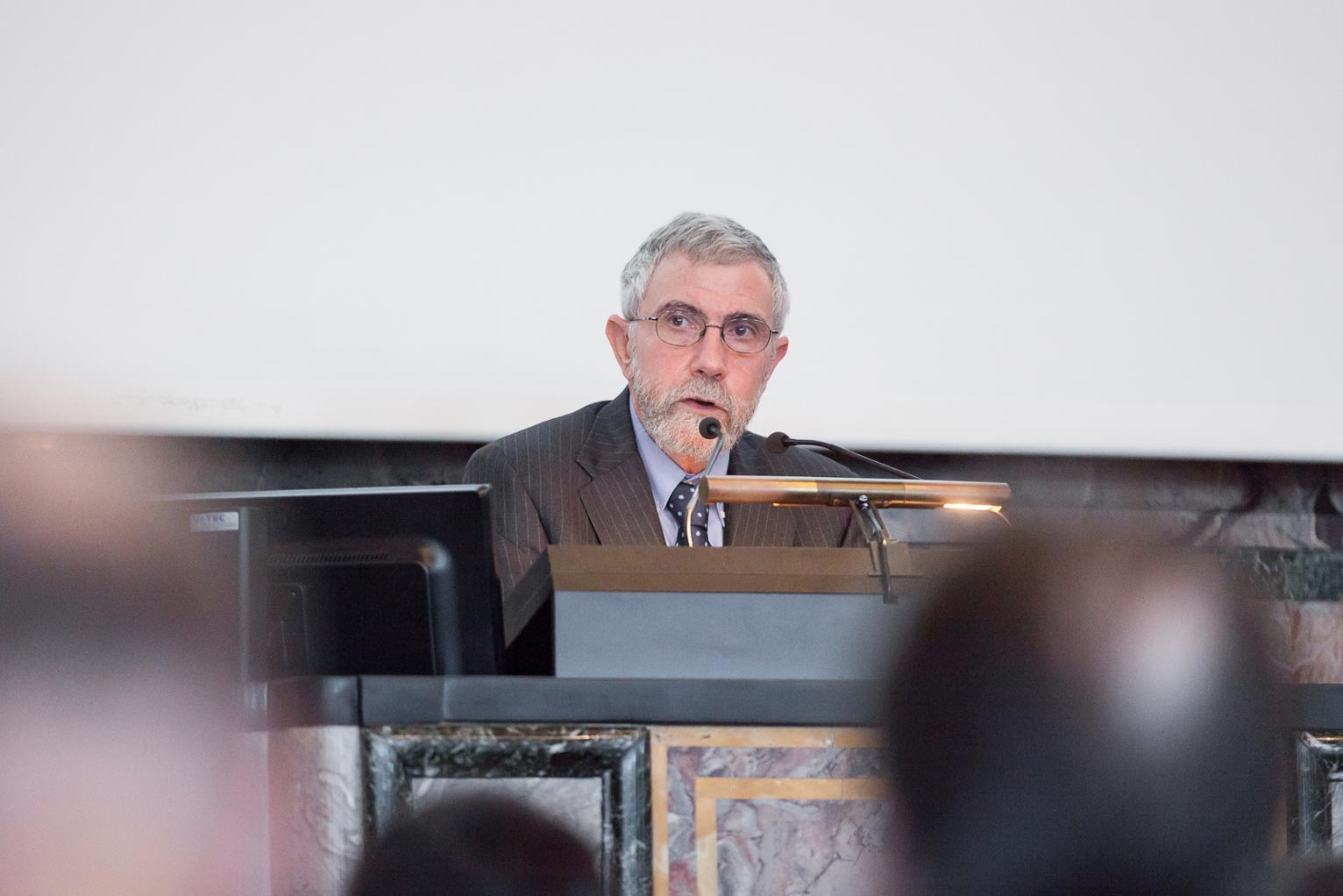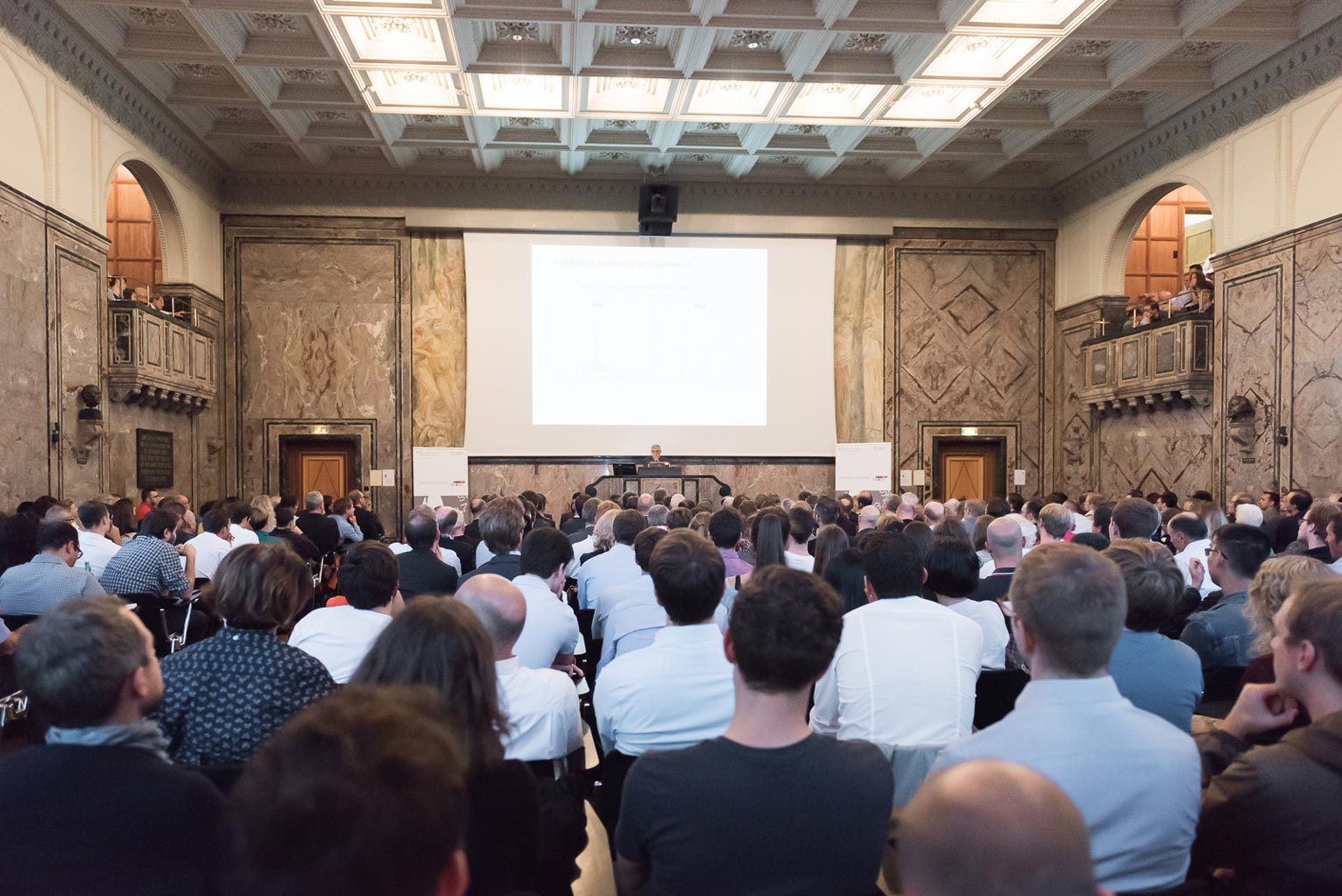Downloads
Article
Seventy years after Winston Churchill gave his historic address calling for a “United States of Europe” at the University of Zurich, Nobel Laureate Professor of economics Paul Krugman stood at the same podium and delivered a provocative lecture on Europe’s future.
by Maura Wyler
Low growth, low-to-negative inflation and negative interest rates have dominated the business headlines in recent years, as they depress margins and profitability of businesses and banks. The problem is nowhere more acute than in Europe, which is also struggling with Brexit, the eurozone debt and refugee crises.
Krugman made clear he didn’t have the answer to all of Europe’s current problems. But if Europe doesn’t solve its economic crisis, its political and social problems will get worse. What keeps Europe in a state of permanent recession or what the IMF calls “lowflation”? His answer is that we’ve seen it all before, in Japan with its two lost decades.
What the Japan case can teach us
In both Europe and Japan the cause of the current economic malaise is usually placed firmly at the door of the financial excesses and spectacular crashes that preceded them. In Japan, it was the infamous bubble of the late 1980s; in Europe it was the 2007–09 financial crisis. But Krugman dismisses the received wisdom that these events could be blamed for such persistent low growth and deflationary scenarios.
To explain the paradox of a persistent recession despite the European Central Bank’s expansionary monetary policies, Krugman summarized the recently revived economic theory of “secular stagnation.” The accelerating decline of working-age populations in Europe and Japan is the underlying cause of a lack of growth that depresses demand and deters companies from investing and utilizing their full capacity. Japan has already shown that such a cycle of low growth and deflation can last for decades, despite massive and multiple expansionary and fiscal stimulus packages. Europe seems determined to repeat Japan’s mistakes and add some new ones, argues Krugman. Europe is further constrained by political weaknesses and the lack of structural flexibility in an asymmetric currency union that makes radical structural reforms difficult to impossible.
So can Europe be saved?
Krugman’s proposed solution is drastic: an aggressive form of Abenomics combining a massive program of fiscal expansion with an accommodating monetary policy to push inflation up to 3–4% and return the economy to a normal path of growth. But he doubts the political will exists for such radical measures. Instead he foresees continued economic stagnation and political paralysis that will slowly undermine the political and social fabric of the European Union. “I predict an erosion, not an explosion,” he concludes.
Seventy years after Winston Churchill gave his historic address calling for a “United States of Europe” at the University of Zurich, Nobel Laureate Professor of economics Paul Krugman stood at the same podium and delivered a provocative lecture on Europe’s future.
by Maura Wyler
Low growth, low-to-negative inflation and negative interest rates have dominated the business headlines in recent years, as they depress margins and profitability of businesses and banks. The problem is nowhere more acute than in Europe, which is also struggling with Brexit, the eurozone debt and refugee crises.

